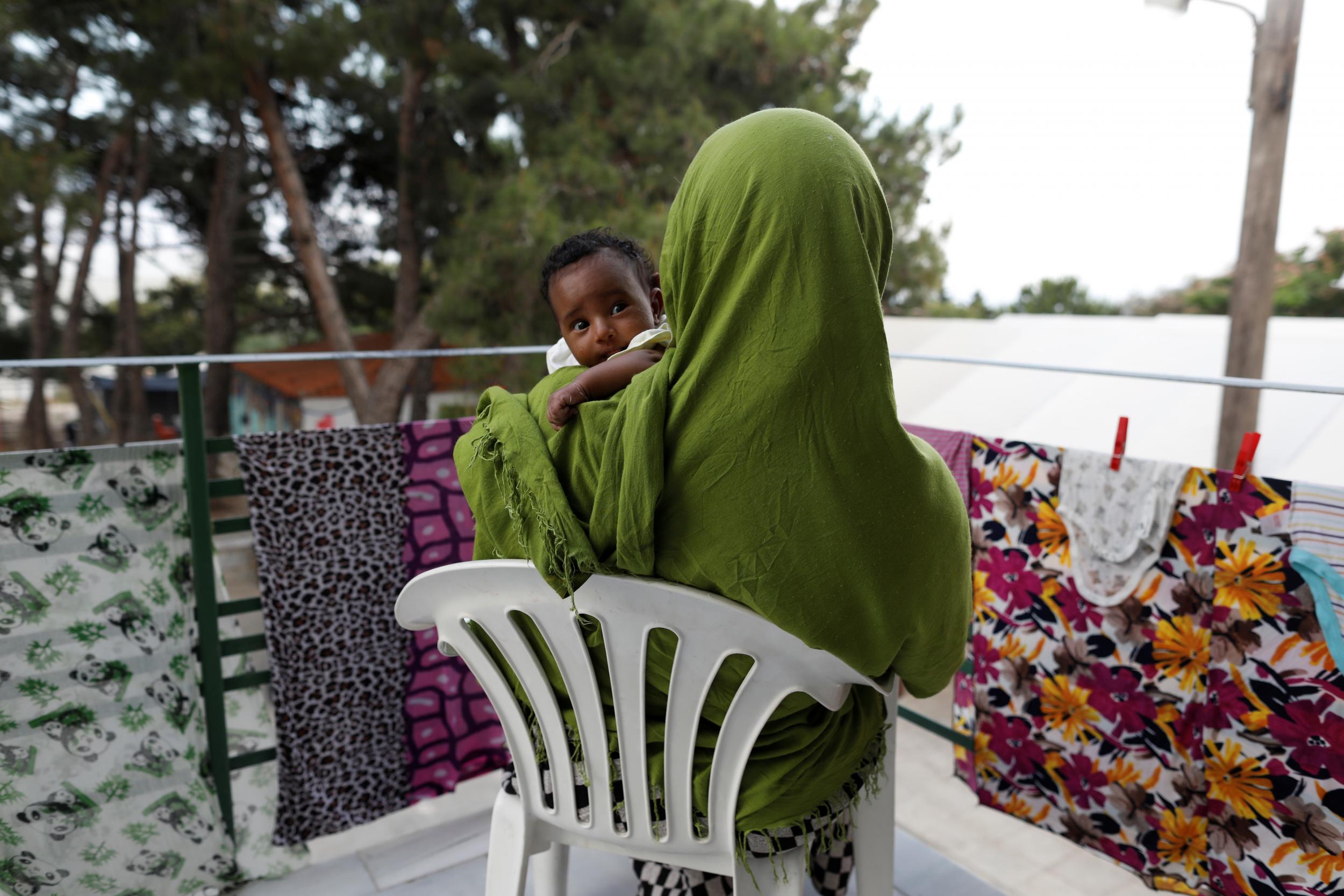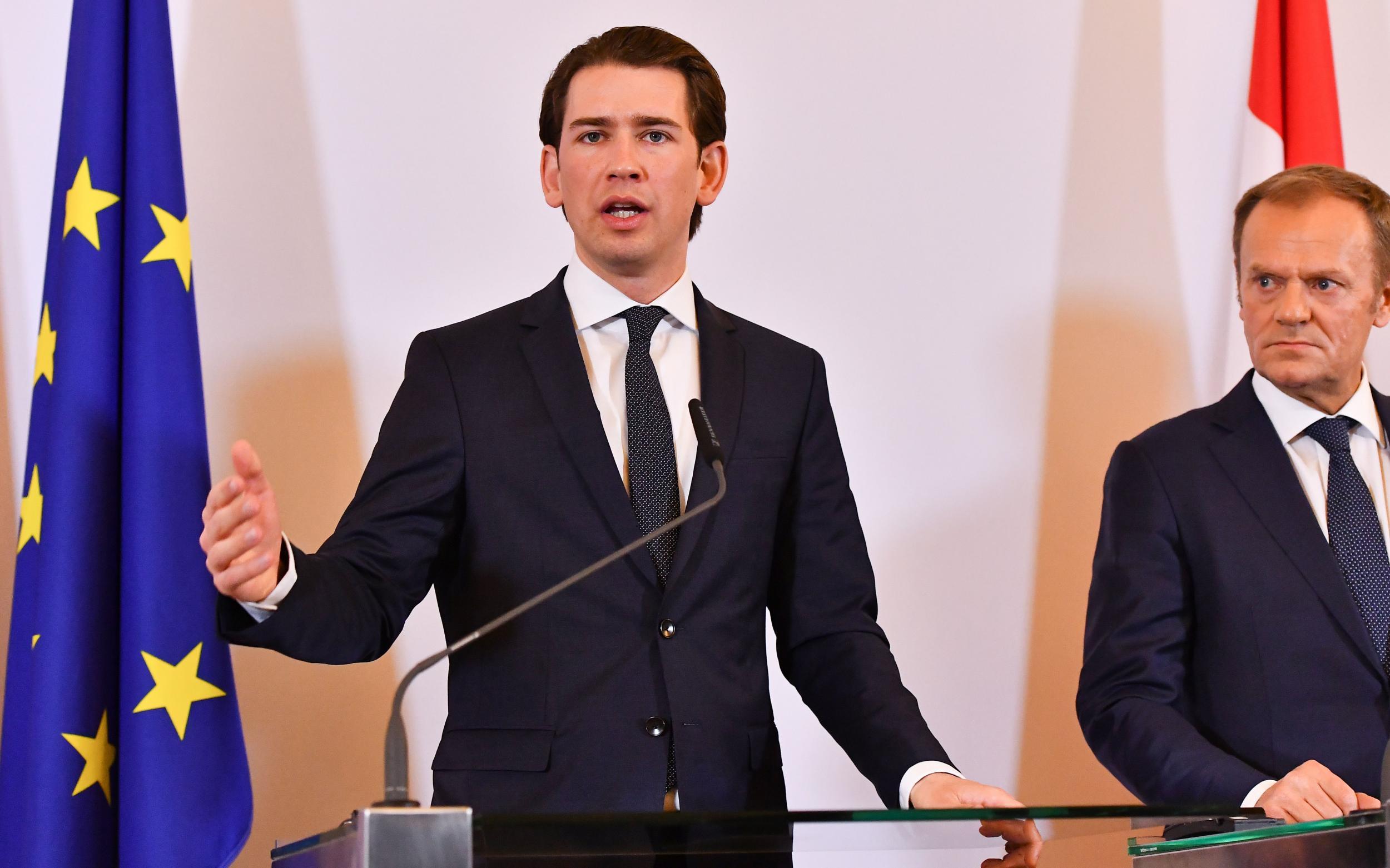EU to step up fight against migrants when Austria’s far-right–conservative coalition chairs European Council later this year
Sebastian Kurz announced migration summit in September

Austria’s chancellor has said he will step up EU efforts against migrants coming to Europe when his government takes its turn chairing the European Council later this year.
Sebastian Kurz, who is in a controversial coalition government with the far-right FPO, said the Austrian presidency, which covers the second half of 2018, would hold a summit on illegal immigration on 20 September.
Immigration has been a major feature of Austrian politics in recent years as, with the country located on one of the main migration routes from the Middle East to Germany, which has taken in hundreds of thousands of refugees.
Elections in October 2017 saw Mr Kurz become chancellor after his OVP party won 31 per cent of the vote. He was joined in government by the FPO, a far-right party which won 26 per cent of the vote.
“As you know during our presidency one of our priorities will be security and the fight against illegal migration,” Mr Kurz said at a press conference in Vienna.
“On the 20th September this year there will be an informal summit of heads of government focusing on illegal migration and security in the European Union. This is something we have agreed upon and we have discussed preparations for the summit.”
Speaking alongside Mr Kurz, Donald Tusk, the permanent president of the European Council, said he had “similar views” on immigration to Mr Kurz. Angling for more funding for the upcoming EU budget, he said any move to crack down on migration had to be properly financed.
“One key priority is stemming the flow of illegal migration to Europe which will require stable and predictable a EU funding instrument,” he said.
“When it comes to managing illegal migration Chancellor Kurz and I have discussed it many times already and we have similar views. Migration will remain a challenge for many years to come and that’s why we want to find as solution that makes sure that the EU, together with national states, can manage future migration flows efficiently and without creating future divisions in Europe.

“It is possible, but naturally, all sides need to compromise. Above all, we must put an end to the destructive emotions surrounding the issue of relocation as they continue to fall populism and divide Europe. If the issue is not resolved by ministers within the next month we will need to find a solution at the June European Council.”
The presidency or chairmanship of the European Council rotates between the 28 countries of the EU on a six-monthly basis. Since the start of the year Bulgaria has been presiding, but Austria will take over in the summer – putting it in charge during the crunch October decision time for Brexit.
The country that holds the rotating presidency has the power to set the agenda of EU summits and push forward EU legislation, chairing and organising meetings.
Austria’s new coalition has already unveiled financial “sanctions” for immigrants who keep their own culture and refuse to “integrate” into Austrian culture. It also has plans to speed up deportations and half undocumented migration.
Join our commenting forum
Join thought-provoking conversations, follow other Independent readers and see their replies
Comments
Bookmark popover
Removed from bookmarks